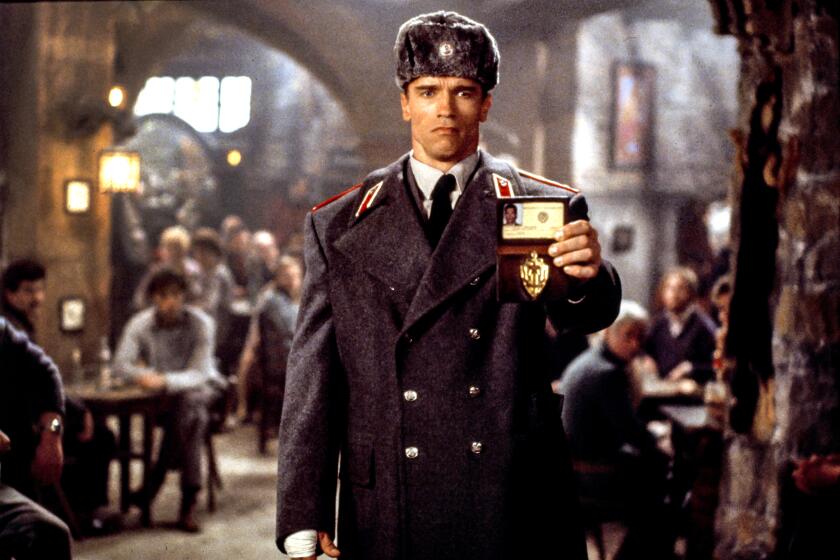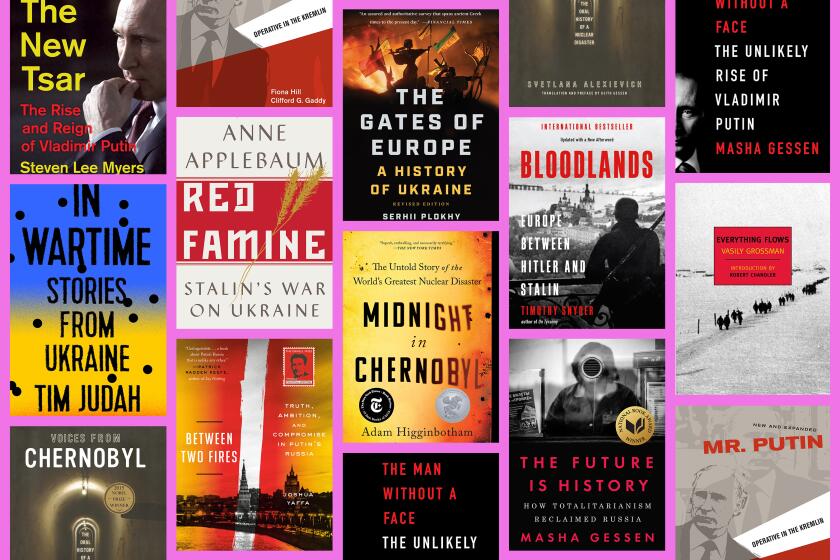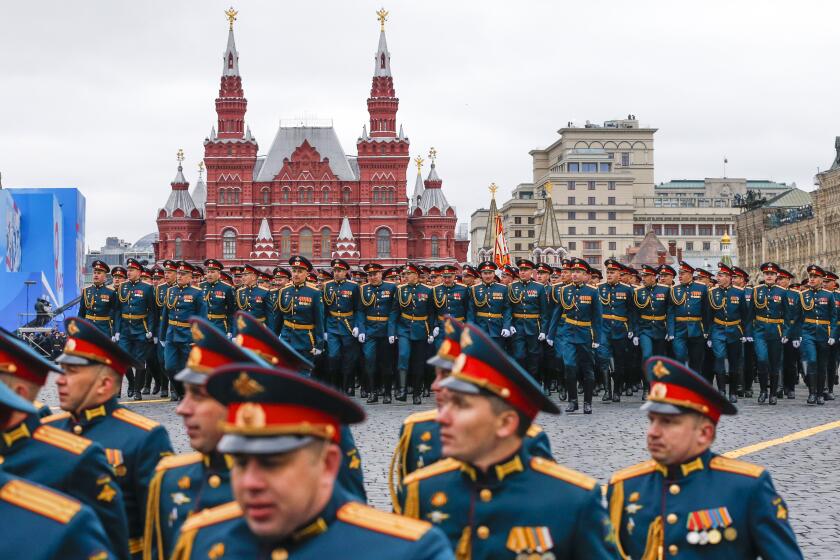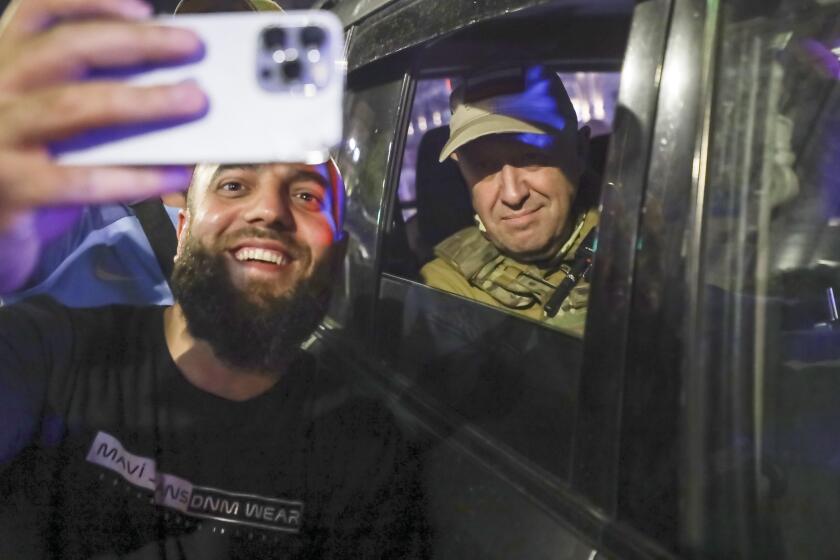This Russian exile fights Putin’s imperialism. If you don’t want to hear from him, he gets it

- Share via
On the Shelf
War and Punishment: Putin, Zelensky, and the Path to Russia's Invasion of Ukraine
By Mikhail Zygar
Scribner: 432 pages, $30
If you buy books linked on our site, The Times may earn a commission from Bookshop.org, whose fees support independent bookstores.
Mikhail Zygar was the founding editor in chief of TV Rain, Russia’s lone independent news television station until it went into exile in 2022, and the author of “All the Kremlin’s Men” and “The Empire Must Die.” But when Russia invaded Ukraine, his friend Nadia, who is Ukrainian, stopped speaking to him, considering him an “imperialist,” never mind that he wrote much of that first book at her home.
On the one hand, Zygar knows that’s unfair. “It is a mistake to blame everyone who has a Russian passport, and it might be counterproductive,” he said in an interview from London, where he’s doing press for his new book, “War and Punishment: Putin, Zelensky, and the Path to Russia’s Invasion of Ukraine.”
An old trope gains new currency as Putin invades Ukraine.
When I asked whether it was fear for his personal safety or the inability to pursue independent journalism in Russia that led him to move to Berlin last year, he says those reasons were both secondary. “I felt a sense of moral obligation,” he explains. “You could not live in Hitler’s Germany; you cannot live in Putin’s Russia. It’s just impossible.”
And yet he doesn’t strongly protest Nadia’s reproach. “I will never argue with a Ukrainian before the war is over,” he says. Indeed, the first sentences of his book take Nadia’s side: “This book is a confession,” he starts, saying that every Russian who let Putin continue down his path bears some responsibility for the war.
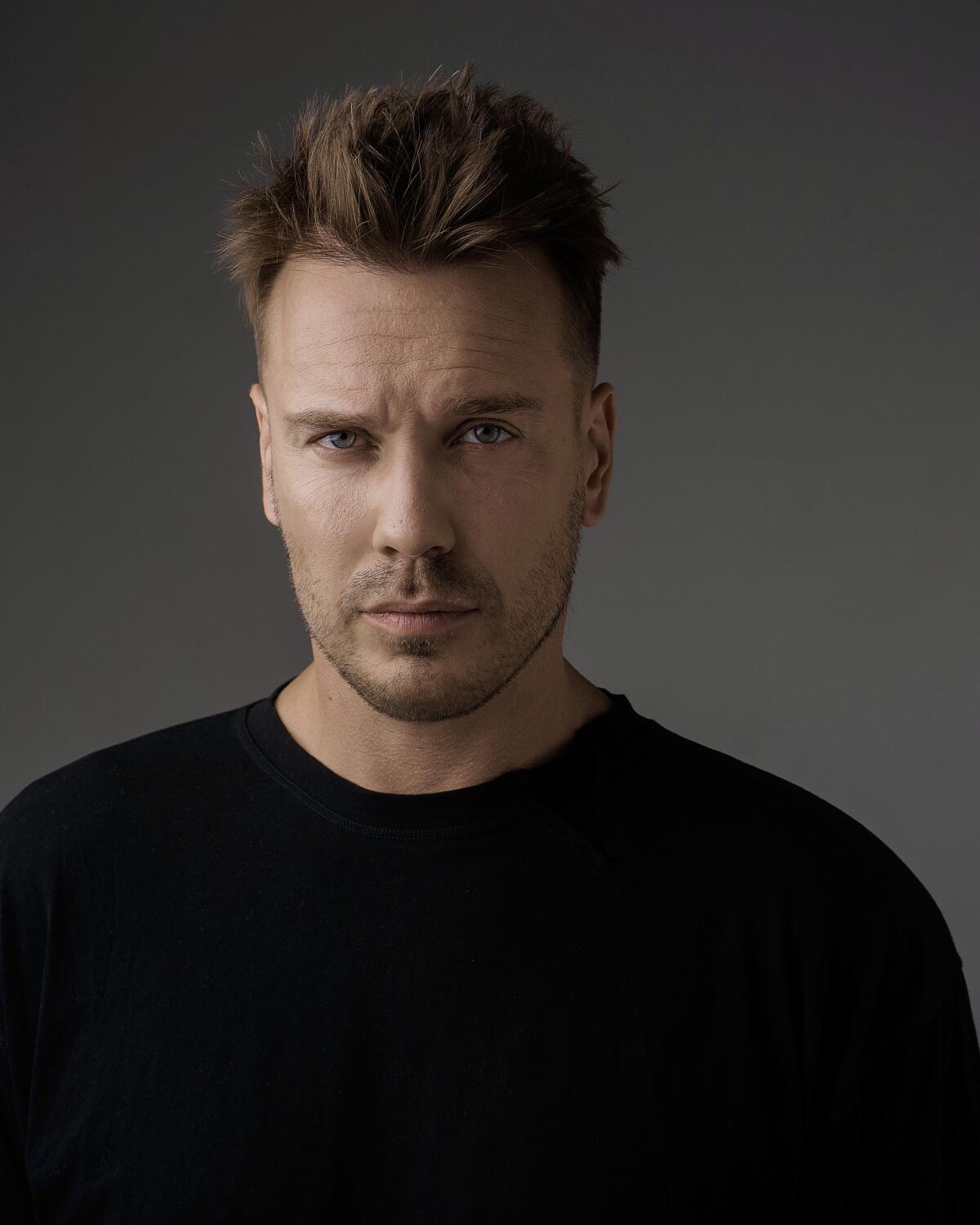
But Zygar at least feels he has taken up arms: “The goal of this book is to fight imperialism.” To change the future, the author believes we must understand the past. He opens his book in the 1600s, well before Russia or Ukraine were countries with set borders and identities, and he writes entirely in the present tense as he journeys through the centuries.
“I think it’s important to try and imagine those historical figures as real people, as today’s politicians,” he explains. “They were humans like us, not monuments made of bronze.”
While there’s plenty of Ukrainian history in the book, Zygar says there are more complete histories of that country. “I’m not writing about Ukraine, I’m writing about Russia,” he says. “It’s like writing a crime story through the eyes of the criminal. It’s the history of Russian crimes.”
The long, detailed and complicated history may confound Westerners, but Zygar’s target audience is Russians, people who have been “brainwashed” for hundreds of years.
A primer on the past and present of two entangled nations at war, from histories of Chernobyl and famine to courageous chronicles of Putin’s terror.
“They have to understand that imperialistic propaganda is the reason for this war,” he says. “We need to stop trying to understand Putin’s motivations — there’s no history that can justify his brutality. Destroying the imperialist idea is the only possibility for Russia to become a decent, democratic nation. That’s going to take a lot of time.”
Zygar, who has been labeled a “foreign agent” by Putin’s government, won’t be doing a book signing in Moscow any time soon, but he says the book will be smuggled in digitally. “The only way any independent work is seen in Russia now is that way, through social media or YouTube and other sites,” he says. “I’m much more privileged than my colleagues in the Soviet era, when people had to copy books by hand to pass around.”
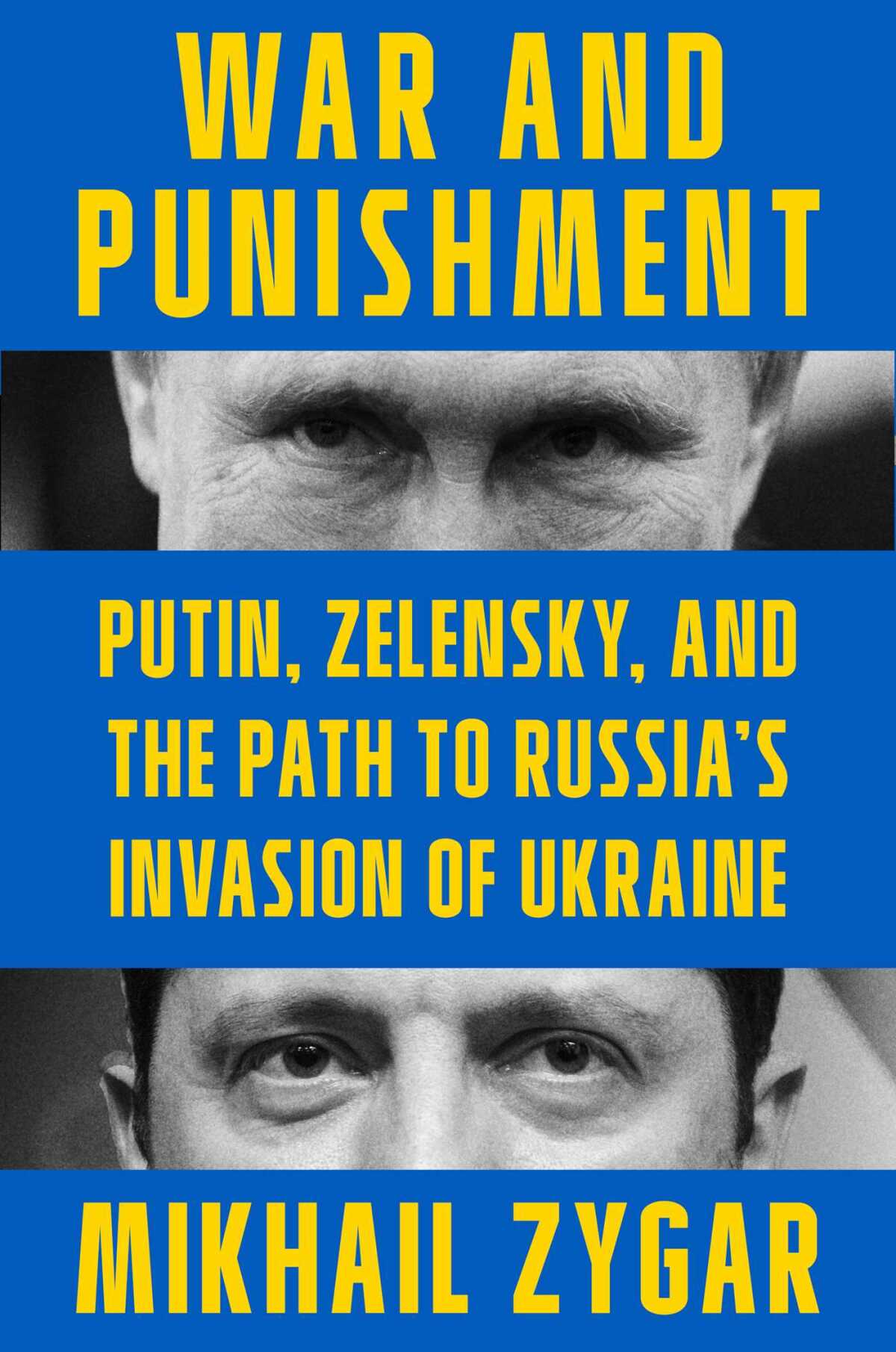
The government has not yet banned his previous books, simply slapping stickers on them reading, essentially, “Don’t buy this. It’s written by a foreign agent.” That, of course, has boosted sales. “Everybody wants to read the dangerous books before they’re completely forbidden,” he says.
For all its historical scope, the book is largely focused on the post-Soviet era, with characters ranging from Boris Yeltsin to Paul Manafort. Zygar says he is always asking himself “What if” questions. “There were a lot of possibilities to have a different history and different outcome,” he says, noting that in 2000 Putin wanted Russia to join NATO. “What if that idea had been accepted — there was a chance to prevent him from becoming this bloody dictator.”
He also argues that President George W. Bush’s invasion of Iraq was an inspiration for Putin’s subsequent strongman behavior in Ukraine. And he believes the now-cornered leader is buying time, hoping Donald Trump gets reelected. “He thinks if Trump wins it can save him,” he says. “Do they have a Plan B? I don’t think so.”
He quickly adds, though, that the West doesn’t bear the blame for the war. “The biggest blame goes to Putin, then the Russian system and the oligarchs.”
Orlando Figes, whose most recent book is “The Story of Russia,” on the country’s love of strongmen, the fate of dissenters and how the war will end.
Nor does he blame only leaders. In the first paragraph of “War and Punishment,” he writes: “Regrettably Russian culture is also to blame for making all these horrors possible.” And throughout the book, he examines the views and influence of cherished Russian literary lions such as Alexander Pushkin, Nikolai Gogol, Fyodor Dostoevsky and Joseph Brodsky.
“In Russian society, even liberal Russians who oppose the war have a tendency to say please don’t touch our special culture, please don’t touch Pushkin, he is our saint,” Zygar says.
Zygar calls not for cancellation but for reckoning, just as the British have reexamined Rudyard Kipling and other imperialists. “If we want to heal ourselves from the disease our nation is suffering from, then we need to be honest with ourselves,” he says. “We have to admit that the idea of Russian exceptionalism and greatness can be poisonous and that great Russian literature is to partly blame.”
The landscape in Russia has shifted even since Zygar finished writing, most recently with the Wagner mercenaries’ semi-rebellion. “This war is making the decay of this regime happen much quicker and Putin is not the same person he used to be,” Zygar says.
Some were buoyed by the news that Yevgeny Prigozhin’s forces were halting their march to Moscow. Others dismissed the armed rebellion as an insignificant development.
A post-Putin era may arrive sooner rather than later — and the country may be destabilized or even slide into civil war, Zygar says — but nothing would change his call for a reset on Russia’s understanding of itself.
“I don’t believe Russia is doomed to be a dictatorship, that an empire is the only way,” he says. “I believed in the true possibility of change during the protests in 2012, but I was wrong. We’ve had a lot of chances. I hope they are not gone forever.”
More to Read
Sign up for our Book Club newsletter
Get the latest news, events and more from the Los Angeles Times Book Club, and help us get L.A. reading and talking.
You may occasionally receive promotional content from the Los Angeles Times.
